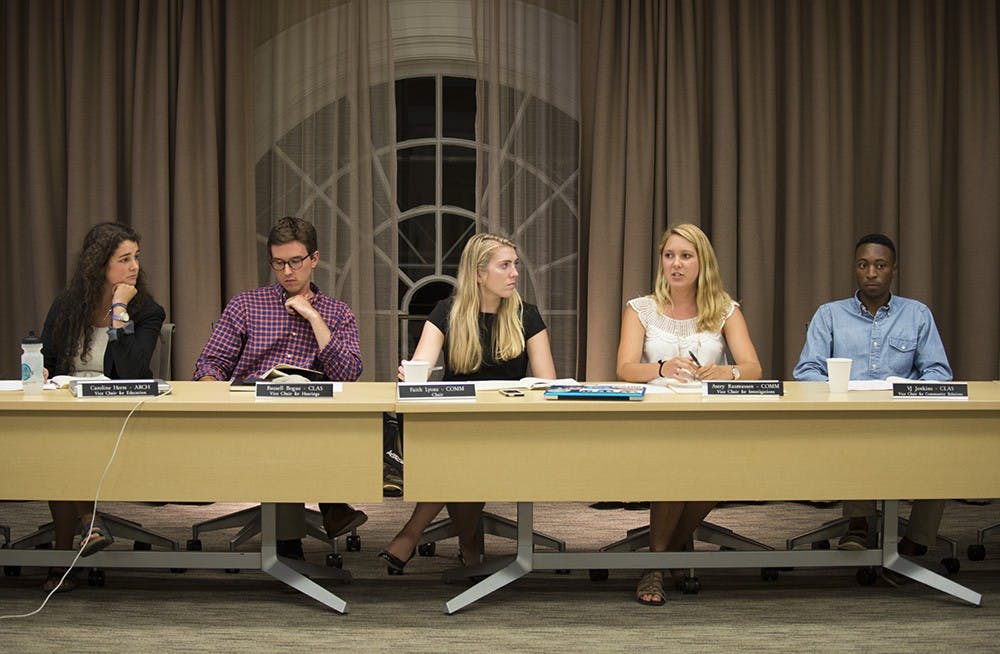The Honor Committee decided Sunday evening to delay any reform of the informed retraction, deciding instead to wait until February when the body discusses a potential multi-sanction system.
The move was due in part to a presentation given by support officer Kate McDaniel, a second-year College student. McDaniel’s presentation analyzed data on honor offenses collected between 2011 and 2015.
McDaniel said it was hard to draw conclusions from the data because it was a small sample size. Furthermore, the information recorded on the reports was not always consistent.
Comparing the number of reports to the student population revealed that less than 0.2 percent of students are reported to the Committee during their time at the University, McDaniel said. Third years in the College were reported more than any other group of students, and faculty were the most frequent reporters.
While it is hard to draw conclusions due to confounding factors, the introduction of the informed retraction in 2013 did change the dynamic of cases, McDaniel said. The data showed the number of students claiming a contributory mental disorder dropped from 11 percent to 3 percent.
“I don’t know whether this was because students that would have taken the CMD are taking the IR, but it dropped a lot,” McDaniel said.
According to the data, one in four reports take the IR as opposed to going to trial. Based on the gross numbers, third years took the most IRs — however, fourth years were more likely to take an IR instead of going to hearing than were third years.
Overall, fewer students are choosing to go to trial. About one in four cases resulted in an IR instead of going to hearing, McDaniel said. Only one multi-violation case that qualified for a single trial resulted in an IR.
Most students were taking an IR for cheating, the most commonly reported honor offense, McDaniel said.
Committee Chair Faith Lyons, a fourth-year Commerce student, said the presentation provided more context to the discussion of reforming the IR, which will take place next semester.







